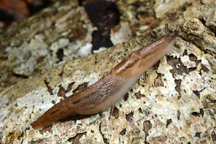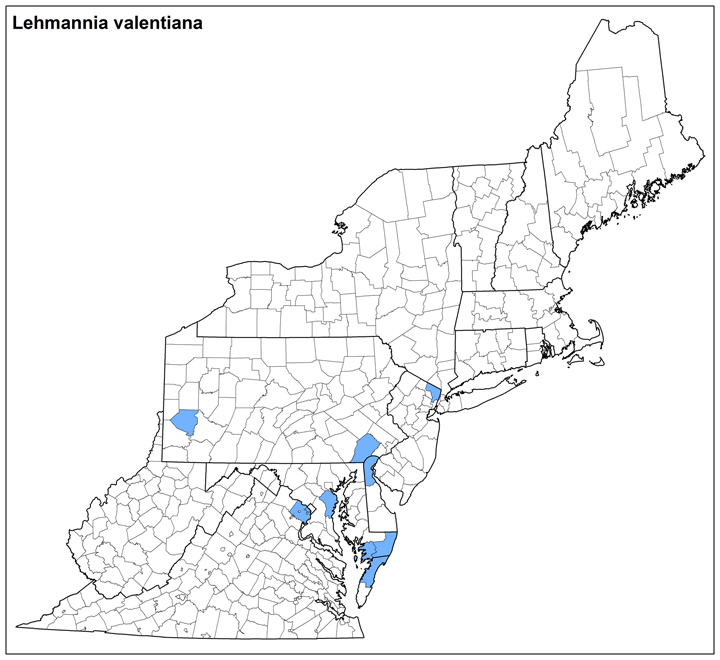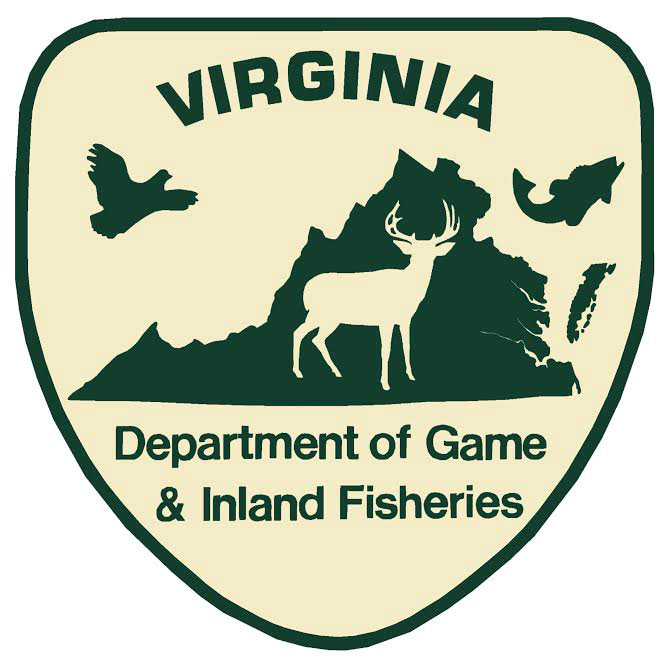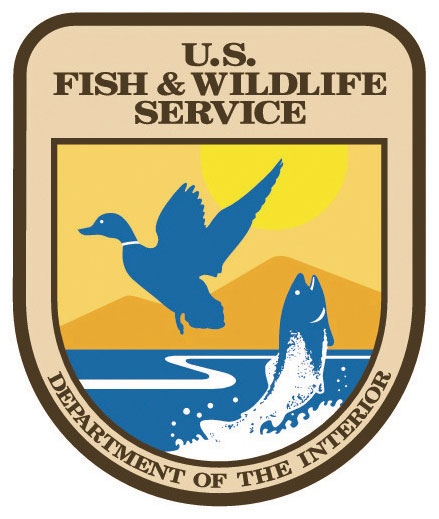Land Snails

Photo: Ambigolimax valentianus. Image © Roy Anderson
Click photo to enlarge.
Ambigolimax valentianus (Férussac, 1821) (non-native)
Family: Limacidae
Common name: Threeband Gardenslug, Valencia Slug
Identification
Length: 60 mm
Ambigolimax valentianus is yellow-gray with a dark head. A dark longitudinal band is on either side of its body and mantle, and there is a light stripe down its mid-dorsum. The bands and mid-dorsal lines lie near to each other on the tail. The dark stripes form a “lyre” shape on the mantle, with additional markings possibly present. The tail has a short keel toward its point, and the sole is 3-part and pale. The slug’s body is covered in clear mucus (Quick, 1960; Wiktor et al., 2000).
This slug is very similar to Lehmannia marginata, but A. valentianus has a lighter yellowish body, and the dark bands are closer together. Internally, the penial flagellum is longer and not pointed, and the bursa copulatrix is more ovate rather than pear-shaped (Quick, 1960).
Ecology
A. valentianus is a synanthropic slug that has been introduced to disturbed habitats worldwide, including urban landscapes, gardens, and greenhouses (Chichester & Getz, 1969). Individuals take shelter in compost heaps, under fallen logs, and stones in moist, shady locations with plenty of vegetation (Herbert, 1997; Wiktor et al., 2000). They may huddle together in groups when at rest (South, 1992).
The species feeds on plants and on algae growing on rocks and trees. They may be pests of flowers grown in greenhouses (South, 1992).
Taxonomy
Synonyms include Limax valentianus, Lehmannia valentiana, Limax poirieri, and Deroceras (Agriolimax) bilineatus.
Distribution
This Mediterranean slug may be found in the west coast, Midwest, and mid-Atlantic US states and in southwest and south-central Canada. In the northeast US, this species has been found in urban areas spanning Massachusetts to Virginia. (Note that older North American literature often incorrectly identified A. valentianus as Lehmannia marginata (Grimm et al., 2009).)
Conservation
NatureServe Global Rank: G5, Apparently secure.
Megan Paustian 6/2017
Range Map (click to enlarge)



